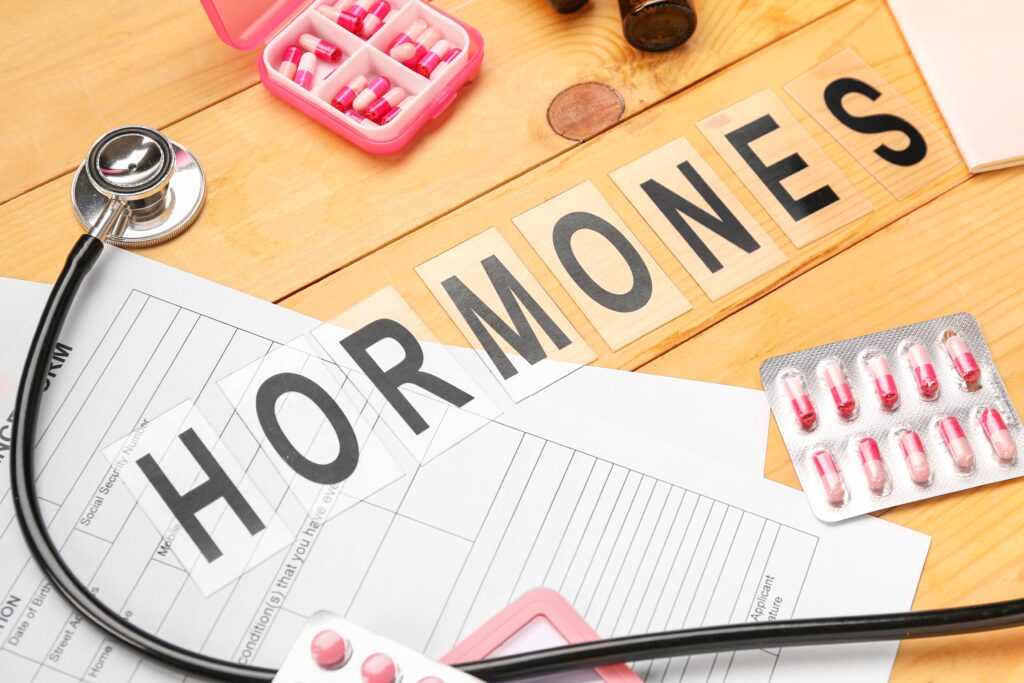Hormone Replacement Therapy (HRT), also known as Menopausal Hormone Therapy (MHT), has long been a topic of discussion and research in the context of menopause. With varying opinions and evolving research, it’s essential to understand the current information to make informed decisions about its use. In this blog, we’ll explore the latest insights and expert opinions on HRT/MHT during menopause, drawing on insights from leading specialists, particularly those based in Australia.
Understanding Menopause and HRT/MHT
Menopause marks the end of a woman’s menstrual cycles and is diagnosed after 12 consecutive months without a period. The transition can bring about various symptoms, such as hot flushes, night sweats, mood swings, and vaginal dryness. HRT/MHT aims to alleviate these symptoms by replenishing estrogen and, in some cases, progesterone levels. Dr. Louise Newson, a GP and Menopause Specialist, explains that “HRT/MHT can be highly e ective in managing menopausal symptoms, improving quality of life, and o ering additional health benefits.”
Benefits of HRT/MHT
1. Symptom Relief HRT/MHT is primarily used to treat common menopausal symptoms. Dr. JoAnn Manson, Professor of Medicine at Harvard Medical School, states that “HRT/MHT is the most e ective treatment for vasomotor symptoms, such as hot flushes and night sweats, as well as for urogenital atrophy.”
2. Bone Health Estrogen plays a crucial role in maintaining bone density. During menopause, the decline in estrogen levels can lead to an increased risk of osteoporosis. Dr. Rebecca Glaser, a hormone specialist, highlights that “HRT/MHT can help prevent bone loss and reduce the risk of fractures.”
3. Cardiovascular Health Recent studies suggest that HRT/MHT may have cardiovascular benefits when started in the early postmenopausal period. Dr. Avrum Bluming, co-author of “Estrogen Matters,” emphasises that “timing is crucial; initiating HRT/MHT closer to the onset of menopause may reduce the risk of heart disease.”
4. Mental Health HRT/MHT has been shown to have positive e ects on mood and cognitive function. Dr. Alice Domar, a psychologist, notes that “HRT/MHT can help alleviate mood swings, anxiety, and depression associated with menopause.”
Risks and Considerations
Despite its benefits, HRT/MHT is not without risks. It’s essential to weigh these risks against the potential benefits and consult with a healthcare provider.
1. Breast Cancer Risk One of the most discussed risks of HRT/MHT is the potential increase in breast cancer risk. Dr. Heather Currie, former Chair of the British Menopause Society, explains that “the risk is related to the type and duration of HRT/MHT use, and it is important to have regular consultations with your healthcare provider to monitor this.”
2. Blood Clots and Stroke HRT/MHT, particularly oral forms, can increase the risk of blood clots and stroke. Dr. Marina Johnson, an endocrinologist, advises that “transdermal HRT/MHT (patches, gels) may have a lower risk profile compared to oral HRT/MHT.”
3. Individual Health Factors The decision to use HRT/MHT should be personalised. Dr. Gemma Sharp, a clinical psychologist, emphasises the importance of considering individual health factors, including personal and family medical history. Alternatives to HRT/MHT For those who cannot or choose not to use HRT/MHT, there are alternative treatments available, such as lifestyle changes, dietary supplements, and non- hormonal medications. Dr. Andrew Huberman, a neuroscientist, suggests that “regular exercise, a balanced diet, and stress management techniques can significantly alleviate menopausal symptoms.” Australian Specialists and Resources In Australia, there are numerous resources and specialists dedicated to women’s health and menopause:
1. Jean Hailes for Women’s Health – A leading Australian organisation providing evidence-based information on women’s health.
2. Australasian Menopause Society – O ers resources and a directory of healthcare providers specialising in menopause.
3. Dr. Sonia Davison – An endocrinologist at the Jean Hailes Medical Centre, specialising in menopause and HRT/MHT.
4. Professor Susan Davis – A renowned researcher in women’s health at Monash University.
Conclusion:
HRT/MHT remains a valuable option for many women experiencing menopausal symptoms, ering relief and additional health benefits. However, it’s essential to have a thorough discussion with a healthcare provider to understand the risks and determine the best approach based on individual needs. For more information and guidance, consider resources such as the North American Menopause Society (NAMS), the British Menopause Society (BMS), and the Australasian Menopause Society.
References:
1. Newson, L. (n.d.). Newson Health Menopause & Wellbeing Centre.
2. Manson, J. (n.d.). Harvard Medical School. 3. Glaser, R. (n.d.). Bioidentical Hormone Therapy Research. 4. Bluming, A. (n.d.). “Estrogen Matters.”
5. Domar, A. (n.d.). Domar Center for Mind/Body Health.
6. Currie, H. (n.d.). British Menopause Society.
7. Johnson, M. (n.d.). “Outliving Your Ovaries.”
8. Sharp, G. (n.d.). Research on Psychological E ects of HRT/MHT.
9. Huberman, A. (n.d.). Stanford University.
10.Jean Hailes for Women’s Health. (n.d.). 11.Australasian Menopause Society. (n.d.). 12.Davison, S. (n.d.). Jean Hailes Medical Centre. 13.Davis, S. (n.d.). Monash University.

